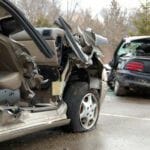Stop, Go Straight On Red?
June 27, 2014 / Vehicle Accidents
If you’re riding a bicycle, moped or motorcycle, that’s exactly what you’ll be able to do come July 1. A new law will take effect in Indiana that will allow two- and three-wheeled vehicles to go through a red light if they have waited for two minutes and the light has not turned green. They must first ensure that there is no traffic coming.
Indiana became the 16th state to pass what they call a “dead red” law in response to the difficulty these light-weight vehicles have at stop signals because they often do not trip the detector which cues the traffic light to change. The riders have to wait for a more massive vehicle to approach the intersection and switch the light to green. The laws in the other dead red states — Arkansas, California, Idaho, Kansas, Minnesota, Missouri, Nevada, North Carolina, Oklahoma, South Carolina, Tennessee, Utah, Washington, Wisconsin and Virginia – vary in the amount of time a cyclist must wait, some merely stating it must be “reasonable.”
What if a cyclist runs the red light and collides with another vehicle? Is it his fault, since the law gives him permission to go through the red? The key element in all dead red, or safe-on-red, laws is that the cyclist can proceed through the red ONLY if the coast is clear. A collision would indicate that obviously it was not, and the cyclist would be liable. Under the Indiana law, after two minutes the cyclist can treat the traffic light as if it were a stop sign and proceed when safe.
While giving some vehicles permission to run red lights may seem to run counter to the goal of making our streets safer, proponents say it actually should reduce accidents. When Nevada passed its dead red law, one assemblyman explained, “When you consider the statistics that 83% of all fatal or near fatal accidents with motorcyclists or bicyclists happen in intersections, getting them out of the intersection as soon as we can legally and responsibly, that becomes the job of lawmakers.”
Certainly, we all would like to see fewer accidents at intersections. According to the Indiana Crash Facts publication, in 2012 there were 38,402 collisions at Indiana four-way intersections, resulting in 117 fatalities and 706 incapacitating injuries.
At Stephenson Rife, we help people who have been injured in traffic accidents, whether they were riding on a bicycle or motorcycle or in a sedan or a pick-up truck. We stay informed about the changing laws and can advise you about your rights when you or a loved one has been hurt through someone else’s negligence. Call 1-317-825-5200 for a free evaluation of your claim with an experienced Indianapolis motorcycle accident lawyer.

 Mike Stephenson has 40 years of experience and is a trusted advisor to many individuals and companies. His current practice is dominated by civil litigation in state and federal courts. He focuses much of his time on handling catastrophic injuries caused by all types of accidents, including motor vehicle, trucking, workplace injuries, product liability, and fire, just to name a few. He also works extensively in construction accidents. [
Mike Stephenson has 40 years of experience and is a trusted advisor to many individuals and companies. His current practice is dominated by civil litigation in state and federal courts. He focuses much of his time on handling catastrophic injuries caused by all types of accidents, including motor vehicle, trucking, workplace injuries, product liability, and fire, just to name a few. He also works extensively in construction accidents. [ 